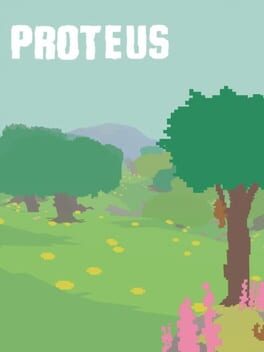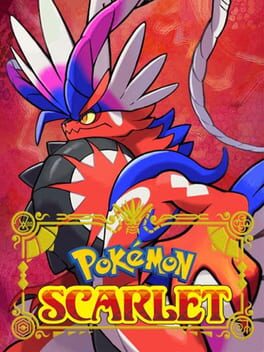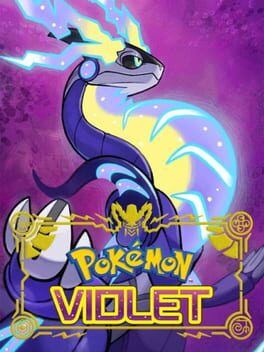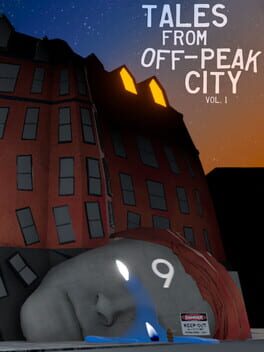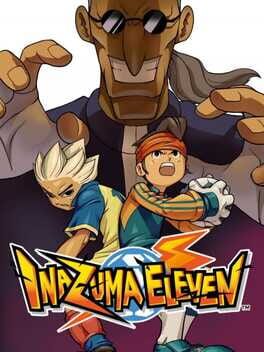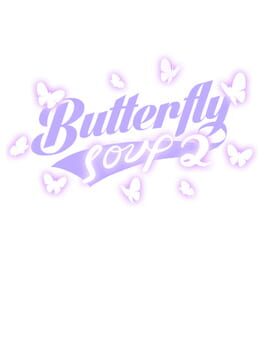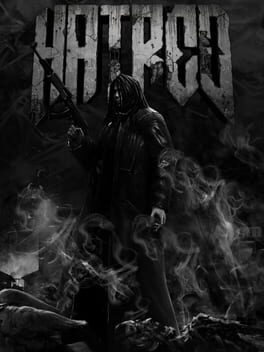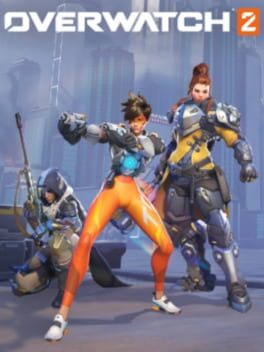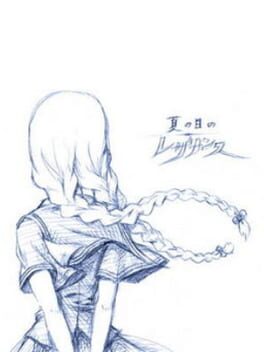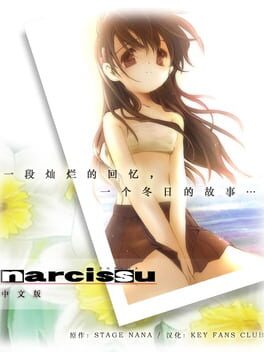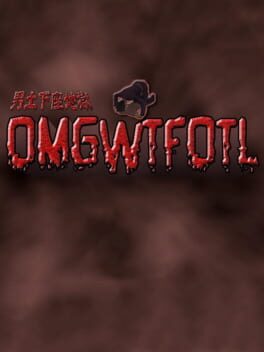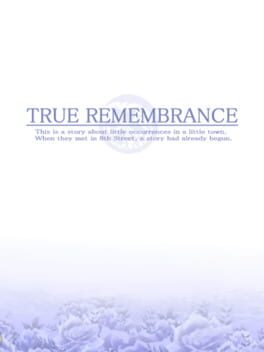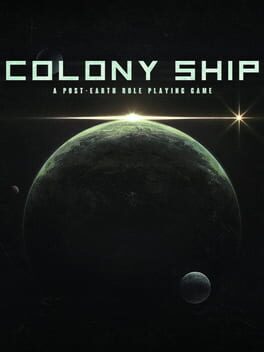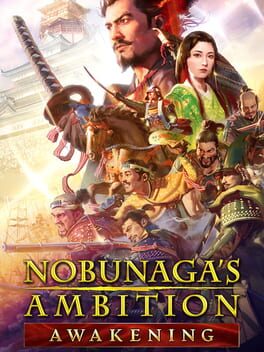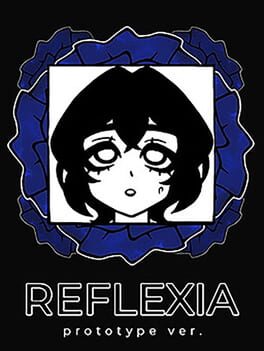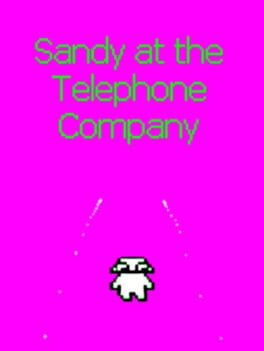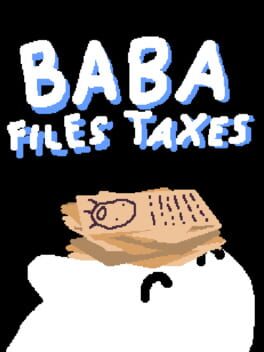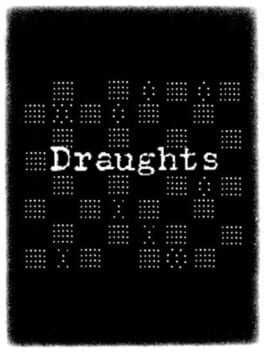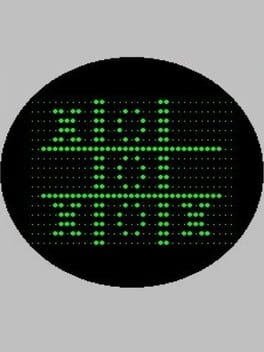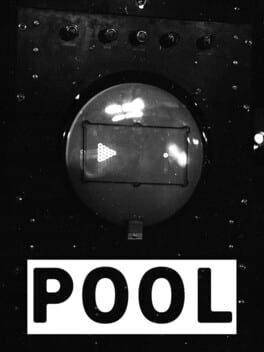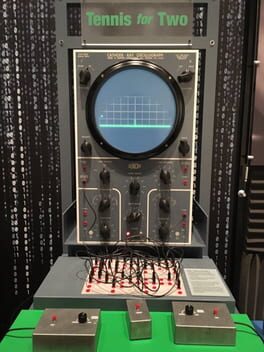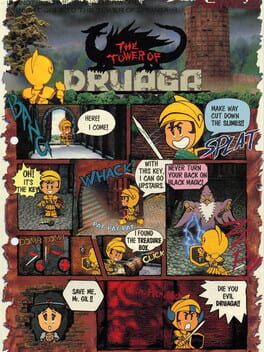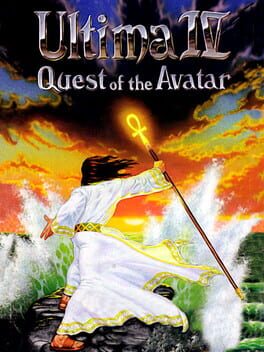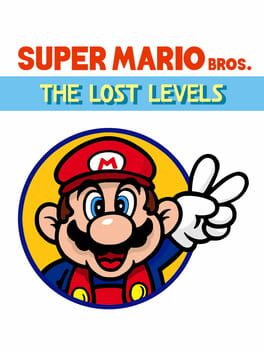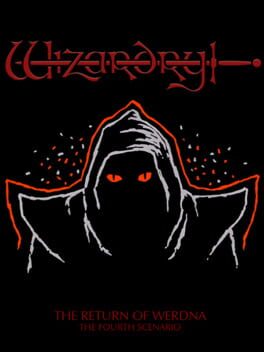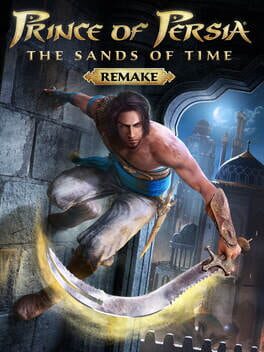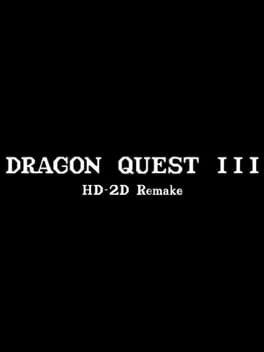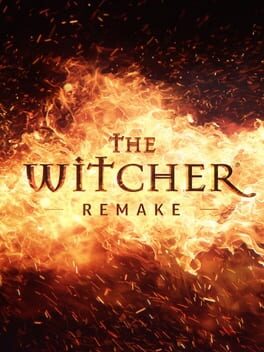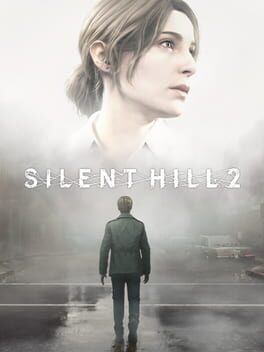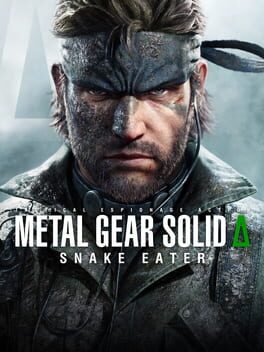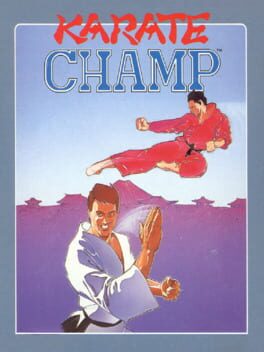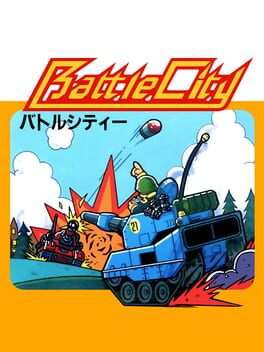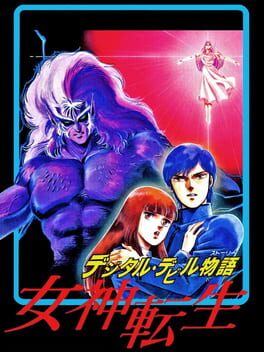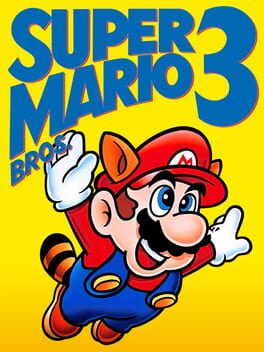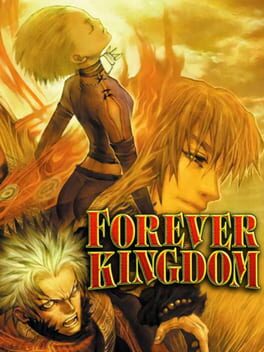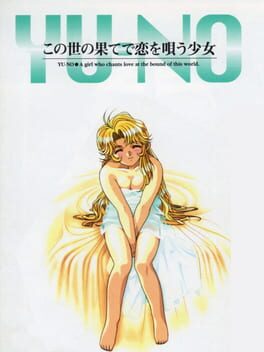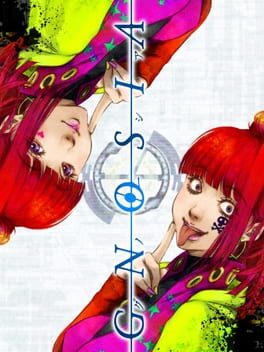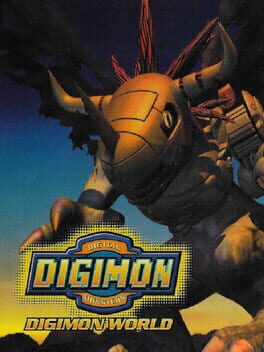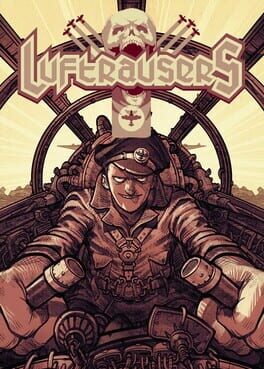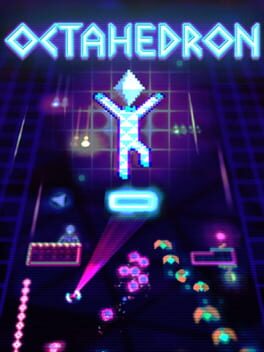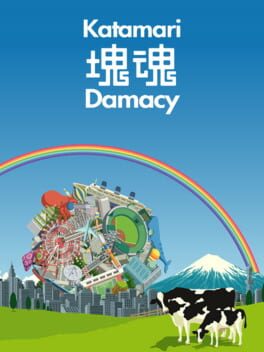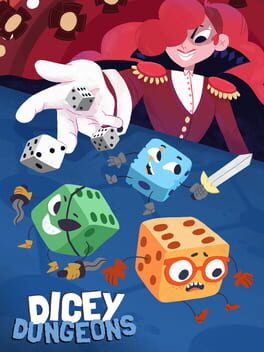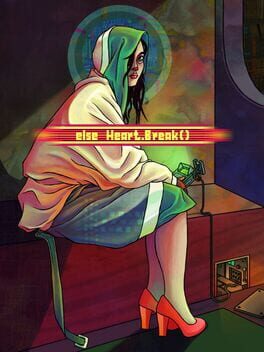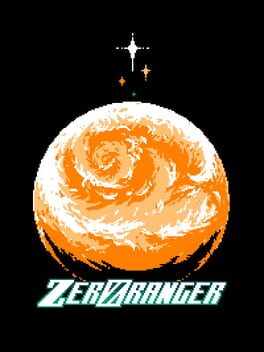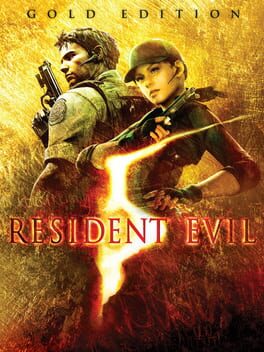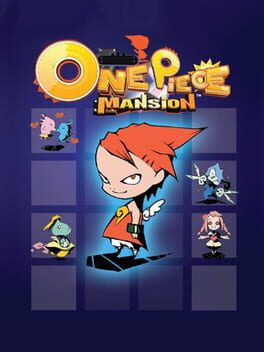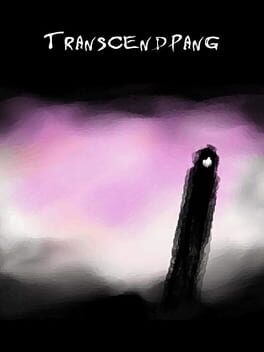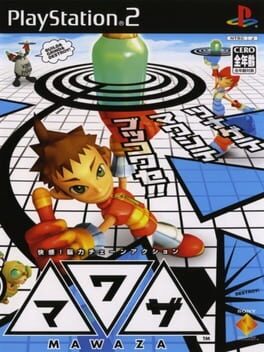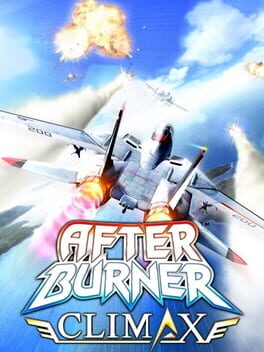55 reviews liked by Sanchezoide
Wonder es el peor Mario de la serie principal desde, no se... Hago memoria y es que ni World, ni los Galaxy, ni Land me parecen tan malos. Los New, que ya eran una versión descafeinada de Mario 3, aun guardaban algo más de interés. El movimiento de Mario se había limado mucho pero seguía manteniendo un mínimo de peso, acelerar guardaba su inercia. En Wonder tenemos el movimiento de Mario más digital de toda la saga. En mi partida escogí a Luigi porque me daba la opción y, no se si habrá alguna diferencia con Mario, pero este no es Luigi. En Mario 2 (J), donde se introdujo por primera vez a Luigi con movimiento propio, el personaje patinaba, aceleraba más rápido y tardaba más en frenar, saltaba más alto y era más incontrolable. Luigi aquí no tiene personalidad. El movimiento de Wonder me recuerda a fangames como Super Mario Flashback. Con cosas así se puede perdonar que el que lo hace no sepa que Mario es su movimiento, porque es un proyecto fan, no tiene las mismas exigencias, etc. Aquí lo preocupante es que son de Nintendo quienes han cometido este ataque a los principios básicos del gordo italiano.
El diseño de niveles no mejora el movimiento. A caba bandera de cierre solo me venía a la cabeza: "no me creo que eso haya sido el nivel". Al poco rato de terminar el juego ya había olvidado la mayoría de ellos. Que cosa más básica, plana, sin fricción. Líneas rectas sin apenas obstáculos o enemigos. Ni siquiera se atreven a combinar más de una idea a la vez, algo básico que solían hacer estos juegos. Algunos bill balas en una sección de autoscroll, un lakitu lanzándote pinchones en una sección de plataformas móviles. Algo, lo que sea. Antes de empezar con Wonder me puse el New de Wii, porque nunca lo había jugado y para recordar el tacto de Mario. Nunca pensé que diría algo así, pero pasar de los niveles de New a estos es un abismo.
Y con los power-ups igual. En el New, uno de los nuevos power-ups que te introducen es el traje de pingüino. Tan ridículo como se ve, hace un uso interesante del movimiento de Mario, que al agacharse en carrera se desliza sobre la panza. La orografía de los niveles en los que te lo daban estaba llena de pendientes, subidas y bajadas, hielo y plataformas. Ninguna genialidad pero el mínimo para hacer disfrutable atravesarlos deslizándote. El primer power-up de Wonder es el elefante. ¿Qué aporta exactamente? ¿Se siente más pesado de controlar? ¿Es más lento o contundente? ¿Puedes, yo que se, balancearte con la trompa? Nada. La ausencia de personalidad del elefante es la misma que la de Luigi o Mario sin transformar. Ah, pero puedes dar trompazos. Enhorabuena, le has añadido un ataque cuerpo a cuerpo a Mario. Menuda revolución.
Lo de las habilidades secundarias ni lo voy a comentar, parecen sacadas de Celeste.
El principal atractivo de Wonder, la wonder-flor, que da un giro a los niveles y les aporta el toque de "locura", decir que es anecdótico sería tenerle demasiada consideración. Si te paras a analizar cada sección alternativa, ¿ofrecen algo más allá de la primera impresión? ¿Repetirías un nivel únicamente para volver a jugar esa sección en la que las tuberías suben y bajan o en la que cambia la perspectiva u otra tontería de usar y tirar? Cualquier nivel de Pizza Tower, el que sea, deja en vergüenza la wonder-flor. El ansia y velocidad con que te incitan a jugar, el ritmo de lanzarte ideas sin mayor introducción, ahora estás hecho de queso, ahora eres una armadura, ahora eres una caja de pizza y vuelas y enseguida entiendes el nuevo movimiento y navegas el nivel de otra forma y de pronto llegas al final y la música cambia y acelera y tienes que correr de vuelta a toda hostia y retrocedes a trompicones y Gustavo te mete prisa y entras en un caos a máxima velocidad... Se siente hasta injusta la comparación con Wonder.
Mario Wonder es una desgracia de juego. Es patético como Mario y una falta de saber hacer y visión preocupante. No es que esperase mucho de la Nintendo actual, pero esto me parece un nuevo nivel de bajeza. En un Mario principal, que es peor. Si fuera un Yoshi, que nadie espera nada de él pues todavía, pero en la saga insignia de Nintendo es triste y, sinceramente, me ha quitado las ganas de probar ningún juego que saque esta compañía en el futuro.
El diseño de niveles no mejora el movimiento. A caba bandera de cierre solo me venía a la cabeza: "no me creo que eso haya sido el nivel". Al poco rato de terminar el juego ya había olvidado la mayoría de ellos. Que cosa más básica, plana, sin fricción. Líneas rectas sin apenas obstáculos o enemigos. Ni siquiera se atreven a combinar más de una idea a la vez, algo básico que solían hacer estos juegos. Algunos bill balas en una sección de autoscroll, un lakitu lanzándote pinchones en una sección de plataformas móviles. Algo, lo que sea. Antes de empezar con Wonder me puse el New de Wii, porque nunca lo había jugado y para recordar el tacto de Mario. Nunca pensé que diría algo así, pero pasar de los niveles de New a estos es un abismo.
Y con los power-ups igual. En el New, uno de los nuevos power-ups que te introducen es el traje de pingüino. Tan ridículo como se ve, hace un uso interesante del movimiento de Mario, que al agacharse en carrera se desliza sobre la panza. La orografía de los niveles en los que te lo daban estaba llena de pendientes, subidas y bajadas, hielo y plataformas. Ninguna genialidad pero el mínimo para hacer disfrutable atravesarlos deslizándote. El primer power-up de Wonder es el elefante. ¿Qué aporta exactamente? ¿Se siente más pesado de controlar? ¿Es más lento o contundente? ¿Puedes, yo que se, balancearte con la trompa? Nada. La ausencia de personalidad del elefante es la misma que la de Luigi o Mario sin transformar. Ah, pero puedes dar trompazos. Enhorabuena, le has añadido un ataque cuerpo a cuerpo a Mario. Menuda revolución.
Lo de las habilidades secundarias ni lo voy a comentar, parecen sacadas de Celeste.
El principal atractivo de Wonder, la wonder-flor, que da un giro a los niveles y les aporta el toque de "locura", decir que es anecdótico sería tenerle demasiada consideración. Si te paras a analizar cada sección alternativa, ¿ofrecen algo más allá de la primera impresión? ¿Repetirías un nivel únicamente para volver a jugar esa sección en la que las tuberías suben y bajan o en la que cambia la perspectiva u otra tontería de usar y tirar? Cualquier nivel de Pizza Tower, el que sea, deja en vergüenza la wonder-flor. El ansia y velocidad con que te incitan a jugar, el ritmo de lanzarte ideas sin mayor introducción, ahora estás hecho de queso, ahora eres una armadura, ahora eres una caja de pizza y vuelas y enseguida entiendes el nuevo movimiento y navegas el nivel de otra forma y de pronto llegas al final y la música cambia y acelera y tienes que correr de vuelta a toda hostia y retrocedes a trompicones y Gustavo te mete prisa y entras en un caos a máxima velocidad... Se siente hasta injusta la comparación con Wonder.
Mario Wonder es una desgracia de juego. Es patético como Mario y una falta de saber hacer y visión preocupante. No es que esperase mucho de la Nintendo actual, pero esto me parece un nuevo nivel de bajeza. En un Mario principal, que es peor. Si fuera un Yoshi, que nadie espera nada de él pues todavía, pero en la saga insignia de Nintendo es triste y, sinceramente, me ha quitado las ganas de probar ningún juego que saque esta compañía en el futuro.
Proteus
2013
Maybe it's just my personal associations with the pixelated view of a world full of nature and my memories of the indie scene at the time, but the first impression of Proteus is reminiscent of Minecraft. Where the world importance comes from its elements and not their particular arrangement, capable of being procedurally generated, making each particular world unique and common at the same time. The major difference, all your world changing actions are taken away. What is left is one of the most important aspects in any game, and in life, to observe. Navigating through a hypersensitive world, since observation and perception are the sole focus, everything seems to carry some life.
Observing how the world changes and how perception changes the world. Getting atop a mountain when the rain comes to see the sky again, to know what time it is, look down again to see that the land has turned into the sea, descend into it and watch how the sky is now the sea. To find comfort upon finding that this world has a moon when the night comes too. Try to find a pattern in the stars, look at the land and see that the lights are mirrored below. Discover that, same as everywhere, magic appears at night.
One of the most important moments is to stand still and observe what's out of reach. How the clouds move, how the sun goes down and how the moon rises on the opposite side. Everything is the life of nature, except for the human tombstones. Because it's about opposites too. To appear on the sea facing the land where to spend the rest of your time. To do anything but escape the cycle of day and night and then seasons and then life.
If Proteus is about life, and life is about observing, the game, of course, can only end in one way. An eye getting closed.
Observing how the world changes and how perception changes the world. Getting atop a mountain when the rain comes to see the sky again, to know what time it is, look down again to see that the land has turned into the sea, descend into it and watch how the sky is now the sea. To find comfort upon finding that this world has a moon when the night comes too. Try to find a pattern in the stars, look at the land and see that the lights are mirrored below. Discover that, same as everywhere, magic appears at night.
One of the most important moments is to stand still and observe what's out of reach. How the clouds move, how the sun goes down and how the moon rises on the opposite side. Everything is the life of nature, except for the human tombstones. Because it's about opposites too. To appear on the sea facing the land where to spend the rest of your time. To do anything but escape the cycle of day and night and then seasons and then life.
If Proteus is about life, and life is about observing, the game, of course, can only end in one way. An eye getting closed.
Proteus
2013
Estoy bastante seguro de que este juego va a seguir dando que hablar en el futuro, porque aunque pertenece a una época y escena artística concretas, ha sido el que más ha logrado atravesarlas con diferencia. Presentándose como poco más que una experiencia sensorial, esta obra es la culminación de multitud de trayectorias que algunos de los mejores artistas del medio venían experimentando desde mediados de los 2000. La reacción virulenta de artistas consagrados como Yahtzee Croshaw no hacen sino confirmar hasta qué punto este juego estuvo adelantado a su tiempo. Con nada más que la contemplación como tu único punto de agarre, este juego te obliga a hacer algo tan sencillo como dejarte llevar por los sonidos y los colores, y en un mundo tan agitado y convulso como el nuestro, eso se siente más revolucionario que cincuenta Braids de simbología pretenciosa.
------------------------------------------------------
I'm pretty sure that this game will still be talked about in the future because, despite belonging to a specific era and a certain art scene, it has been one of the only ones to surpass them. Presenting itself as little more than a sensory experience, this is the culmination of a multitude of trajectories that some of the best artists in the medium had been tweaking with since the mid-2000s. The vicious revolt against that established critics, such as Yahtzee Croshaw. had over it only confirms the extent of its success. With nothing but contemplation as your only tool, this game forces you to do something as simple as let yourself be carried away by sounds and colors, and in a world as hectic and convulsive as this, that feels more revolutionary than fifty Braids loaded with pretentious symbology.
------------------------------------------------------
I'm pretty sure that this game will still be talked about in the future because, despite belonging to a specific era and a certain art scene, it has been one of the only ones to surpass them. Presenting itself as little more than a sensory experience, this is the culmination of a multitude of trajectories that some of the best artists in the medium had been tweaking with since the mid-2000s. The vicious revolt against that established critics, such as Yahtzee Croshaw. had over it only confirms the extent of its success. With nothing but contemplation as your only tool, this game forces you to do something as simple as let yourself be carried away by sounds and colors, and in a world as hectic and convulsive as this, that feels more revolutionary than fifty Braids loaded with pretentious symbology.
Pokémon Scarlet
2022
Pokémon Violet
2022
It's broken, completely broken in so many ways...the FPS is atrocious....and it's the best Pokemon game I've played in a decade. I love the characters so much and the freedom of exploring is so much fun. The designs are very different but still fun, you can tell there's a new head of art direction. Overall genuinely cool game.
Cosmo D: is simply a master of video game scenery. It reconfigures the aesthetic sense of visual collage through the architecture itself, leaving the seams that hold any video game level exposed, from textures and models to the Skybox, all mixed, with experimentation and without shame or desire to be impressive, pure architecture. digital surreal.
Nothing of coherent proportions or conventional spatial sense, something that, on the other hand, is quite common in the medium, much as contemporary AAA video games and their cinematographic and photorealistic ambitions want to deny. An observation room with a window to another room, with windows that show a landscape built like an old photograph. Representation of psyche and desire, also of memories.
- The pizza at the level of art, and the human activity of creating it at the level of any articulation and artistic practice, the result? At the delivery of each pizza, a semi-criticism between one or several characters of the piece created, with their counterpoints and their infulas written through small dialogues that float in the air of places sunk in music, full of sculptures, records, books and instruments that generate the sensation of being "bricks" to complete spaces rather than artifacts with an aesthetic and communicative function. A space so consumed by capitalism that there is no real aesthetic scale on practically anything.
100% new millennium Volatile and changing like our cultural and social dynamics.
Nothing of coherent proportions or conventional spatial sense, something that, on the other hand, is quite common in the medium, much as contemporary AAA video games and their cinematographic and photorealistic ambitions want to deny. An observation room with a window to another room, with windows that show a landscape built like an old photograph. Representation of psyche and desire, also of memories.
- The pizza at the level of art, and the human activity of creating it at the level of any articulation and artistic practice, the result? At the delivery of each pizza, a semi-criticism between one or several characters of the piece created, with their counterpoints and their infulas written through small dialogues that float in the air of places sunk in music, full of sculptures, records, books and instruments that generate the sensation of being "bricks" to complete spaces rather than artifacts with an aesthetic and communicative function. A space so consumed by capitalism that there is no real aesthetic scale on practically anything.
100% new millennium Volatile and changing like our cultural and social dynamics.
Inazuma Eleven
2008
Inazuma Eleven es un juego hipócrita. Mark Evans se empeña en repetir que el fútbol es lo más importante pero cuesta creer sus palabras. A Inazuma Eleven le da igual el fútbol.
En Inazuma Eleven no entienden de asistencias ni de centros, no conocen la emoción de un corner, una falta directa o un penalti. Inazuma Eleven solo entiende de ataques especiales (técnicas), combates aleatorios (pachangas), mazmorras y cofres. Inazuma Eleven es un jrpg con pintura de fútbol como podría tener pintura de cualquier otra cosa. Inazuma Eleven ni siquiera entiende lo más importante de cualquier deporte: la incertidumbre de no saber quién se llevará la victoria. Todo sigue su narrativa de anime y ganar el partido es lo que se da por supuesto salvo que el guión diga lo contrario.
¿Cómo puede ser el fútbol, según Mark Evans, lo más importante, lo que traspasa diferencias y vence problemas externos, lo que une a las personas como iguales y saca lo mejor de cada uno cuando se juega por el equipo y la victoria? Inazuma Eleven no cree nada de esto. Es un juego hipócrita y el fútbol es una palabra vacía para sus autores. Cualquier segundo de un Betis-Sevilla tiene más corazón que toda esta saga de juegos.
En Inazuma Eleven no entienden de asistencias ni de centros, no conocen la emoción de un corner, una falta directa o un penalti. Inazuma Eleven solo entiende de ataques especiales (técnicas), combates aleatorios (pachangas), mazmorras y cofres. Inazuma Eleven es un jrpg con pintura de fútbol como podría tener pintura de cualquier otra cosa. Inazuma Eleven ni siquiera entiende lo más importante de cualquier deporte: la incertidumbre de no saber quién se llevará la victoria. Todo sigue su narrativa de anime y ganar el partido es lo que se da por supuesto salvo que el guión diga lo contrario.
¿Cómo puede ser el fútbol, según Mark Evans, lo más importante, lo que traspasa diferencias y vence problemas externos, lo que une a las personas como iguales y saca lo mejor de cada uno cuando se juega por el equipo y la victoria? Inazuma Eleven no cree nada de esto. Es un juego hipócrita y el fútbol es una palabra vacía para sus autores. Cualquier segundo de un Betis-Sevilla tiene más corazón que toda esta saga de juegos.
Butterfly Soup 2
2022
Briana Lei and her first Butterfly Soup are part of the wave of "video games that do not love our time, but the people who live in it"
It is a very difficult pill for me to swallow because this year I was expecting a lot of games that have not gone beyond remarkable, but I find it hard to believe that the one I like the least is a surprise game by Briana Lei, but of course, in hindsight, it was already clear that it would be like this. The first BP articulated a teenage fantasy where the only normative thing was its VN format and semi-anime Tumblr visuals. It was an incisive political story that almost openly framed the new generations raised in the 2000s-both in the good and in the bad-and how they lived a full adolescence in our modern turbo-capitalist world, whose foundations have been built with such eagerness that it seems There will be no room for drastic sociopolitical change that maintains and ensures equity for people. Demonstrations against homosexual marriage, situations where multiculturalism, disappointment and paternalism towards a generation trapped in an unequal system... And in the center a group of girls of varied ethnicity trying to live. everything else needs a solution, but it's in the background, because in the chaos, these girls have the right to live, we all do.
It's perfect, no need for a sequel. The important thing was the girls, yes, but their situation in the world, not so much the laughing breezy dialogues.
BS2 has a lot of heart, but it succumbs to the "improve and expand" preconceptions and thereby becomes something worse than a compliant sequel: A deal.
Expand, continuing a story, and improve by emphasizing personalities to moments of exaggeration.
You play, I tuck you in. You know this, take more of it.
It tries to pay REAL attention, and point out the social causes that didn't have as much depth in the first game as
The exploration of gender and sexuality, racism, the complexity of family relationships... But the truth is that all this was already in the first game, it was not underlined, but its presence crossed the entire work like a lightning bolt. It was not heard clearly, but it had an impact after the fact.
The pandemic has changed the world for the worse if possible for some, we go two steps forward and one step back. It's still a step forward, but still.
We can't let social and moral causes become fictional genres, not even Briana Lei, because this is what has happened in BS2.
I wanted to write more things, but it's getting difficult for me.
Bye bye, Butterlfy
It is a very difficult pill for me to swallow because this year I was expecting a lot of games that have not gone beyond remarkable, but I find it hard to believe that the one I like the least is a surprise game by Briana Lei, but of course, in hindsight, it was already clear that it would be like this. The first BP articulated a teenage fantasy where the only normative thing was its VN format and semi-anime Tumblr visuals. It was an incisive political story that almost openly framed the new generations raised in the 2000s-both in the good and in the bad-and how they lived a full adolescence in our modern turbo-capitalist world, whose foundations have been built with such eagerness that it seems There will be no room for drastic sociopolitical change that maintains and ensures equity for people. Demonstrations against homosexual marriage, situations where multiculturalism, disappointment and paternalism towards a generation trapped in an unequal system... And in the center a group of girls of varied ethnicity trying to live. everything else needs a solution, but it's in the background, because in the chaos, these girls have the right to live, we all do.
It's perfect, no need for a sequel. The important thing was the girls, yes, but their situation in the world, not so much the laughing breezy dialogues.
BS2 has a lot of heart, but it succumbs to the "improve and expand" preconceptions and thereby becomes something worse than a compliant sequel: A deal.
Expand, continuing a story, and improve by emphasizing personalities to moments of exaggeration.
You play, I tuck you in. You know this, take more of it.
It tries to pay REAL attention, and point out the social causes that didn't have as much depth in the first game as
The exploration of gender and sexuality, racism, the complexity of family relationships... But the truth is that all this was already in the first game, it was not underlined, but its presence crossed the entire work like a lightning bolt. It was not heard clearly, but it had an impact after the fact.
The pandemic has changed the world for the worse if possible for some, we go two steps forward and one step back. It's still a step forward, but still.
We can't let social and moral causes become fictional genres, not even Briana Lei, because this is what has happened in BS2.
I wanted to write more things, but it's getting difficult for me.
Bye bye, Butterlfy
Hatred
2015
A thought that has entered my head.
I don't know the state of "wholesome" in video games, but from what little I got into it, for me most opinologists failed at the point that they pointed to gamified mundane activities (of which I am a moderate fan) as a response to violence, being in reality many of these activities, such as fishing or cutting down trees, could be interpreted as a form of ecological violence without
"Enemies". This is how they usually present the digital entities that we face. But we are not "enemies" in games that do not contextualize terraforming or indiscriminate exploitation of resources? Bending the Minecraft and Animal Crossing regions is fine, but the Hatred neighborhood is wrong?
Video games separate people, individuals.
I am more inclined towards the creation or presentation of physical conflict through sports, preferably fictitious, but hey.
Video game creators shouldn't fear violence. Its exploration in fictional contexts is important, in all its facets and perspectives, and few media are better than the video game to do so. It doesn't matter if they are explorations of violence and recreation of conflict in a loop like in the Taroverse, or action works that explore identity and personal emptiness through stylization and hunting as a way of life, like Itsuno's Devil May Cry .
Hatred and the original Postal do their thing in a not so different way because they are a kind of horror games that do not deal with the subject of violence in a standard way, they do not offer the stereotypical heroic fantasy or resemble the examples of before, no evocative, but they are honest, they present violence as a grotesque activity in a neighborhood with a Dollhouse aesthetic (also Nier Repliant did) and they expose something that, although it needs an appropriate and convincing contextualization, is very real: violence is something easy to exercise , in almost all its forms, and in video games it's something we just do because it's satisfying. Already, there are a few pop video games that reflect on this (Taroverse, SpO: The line, Max Payne 3, bioshock...) but they usually need context or even a bait to bite so that we enter their conversation without feeling offended, for what? Why is MWII acceptable ("acceptable") until it puts us in terrorist control very explicitly? There was some controversy there, but not so much that in every TD game anyone can be a terrorist? Is it okay to play practically the same as Hatred in The Last of us part II just because that game has a -poor- excuse to contextualize scenes of extreme photorealistic ultragraphic violence? And come on, TLoU2 has no real intention of making us uncomfortable.
At least not much more than the intention of offering a satisfying time through fairly well-constructed action. But, again, Far Cry 3? 60% of the games? I don't know, a study on it would be interesting. As long as it doesn't have something like Under the skin as a scale for when you try to put the player in the skin of the antagonist or monster, but, hey.
-------------------------------------------------- -------------------------------------------------- -----
It's weird, this violence thing reminds me a bit of what was said about "this game makes you feel like batman/spiderman/superhero" and I was like: "Bro, almost all games make you feel like a superhero without a cape"
-------------------------------------------------- -------------------------------------------------- -----
__
KANE & LYNCH 2:
BEST GAME
WESTERN SPREADING CHAOS IN SHANGHAI, THE DIGITAL IMAGE PORTRAITS THE EAST AS A PLAYING FIELD. awful everything. play it
Arduween 1x09
I don't know the state of "wholesome" in video games, but from what little I got into it, for me most opinologists failed at the point that they pointed to gamified mundane activities (of which I am a moderate fan) as a response to violence, being in reality many of these activities, such as fishing or cutting down trees, could be interpreted as a form of ecological violence without
"Enemies". This is how they usually present the digital entities that we face. But we are not "enemies" in games that do not contextualize terraforming or indiscriminate exploitation of resources? Bending the Minecraft and Animal Crossing regions is fine, but the Hatred neighborhood is wrong?
Video games separate people, individuals.
I am more inclined towards the creation or presentation of physical conflict through sports, preferably fictitious, but hey.
Video game creators shouldn't fear violence. Its exploration in fictional contexts is important, in all its facets and perspectives, and few media are better than the video game to do so. It doesn't matter if they are explorations of violence and recreation of conflict in a loop like in the Taroverse, or action works that explore identity and personal emptiness through stylization and hunting as a way of life, like Itsuno's Devil May Cry .
Hatred and the original Postal do their thing in a not so different way because they are a kind of horror games that do not deal with the subject of violence in a standard way, they do not offer the stereotypical heroic fantasy or resemble the examples of before, no evocative, but they are honest, they present violence as a grotesque activity in a neighborhood with a Dollhouse aesthetic (also Nier Repliant did) and they expose something that, although it needs an appropriate and convincing contextualization, is very real: violence is something easy to exercise , in almost all its forms, and in video games it's something we just do because it's satisfying. Already, there are a few pop video games that reflect on this (Taroverse, SpO: The line, Max Payne 3, bioshock...) but they usually need context or even a bait to bite so that we enter their conversation without feeling offended, for what? Why is MWII acceptable ("acceptable") until it puts us in terrorist control very explicitly? There was some controversy there, but not so much that in every TD game anyone can be a terrorist? Is it okay to play practically the same as Hatred in The Last of us part II just because that game has a -poor- excuse to contextualize scenes of extreme photorealistic ultragraphic violence? And come on, TLoU2 has no real intention of making us uncomfortable.
At least not much more than the intention of offering a satisfying time through fairly well-constructed action. But, again, Far Cry 3? 60% of the games? I don't know, a study on it would be interesting. As long as it doesn't have something like Under the skin as a scale for when you try to put the player in the skin of the antagonist or monster, but, hey.
-------------------------------------------------- -------------------------------------------------- -----
It's weird, this violence thing reminds me a bit of what was said about "this game makes you feel like batman/spiderman/superhero" and I was like: "Bro, almost all games make you feel like a superhero without a cape"
-------------------------------------------------- -------------------------------------------------- -----
__
KANE & LYNCH 2:
BEST GAME
WESTERN SPREADING CHAOS IN SHANGHAI, THE DIGITAL IMAGE PORTRAITS THE EAST AS A PLAYING FIELD. awful everything. play it
Arduween 1x09
Overwatch 2
2022
18 lists liked by Sanchezoide
by Xator_Nova |
180 Games
by Ira |
55 Games
by Xator_Nova |
10 Games
by megahouten |
40 Games
by rubenmg |
19 Games
by Micho |
14 Games
by ivb |
15 Games
by TheMatee |
30 Games

